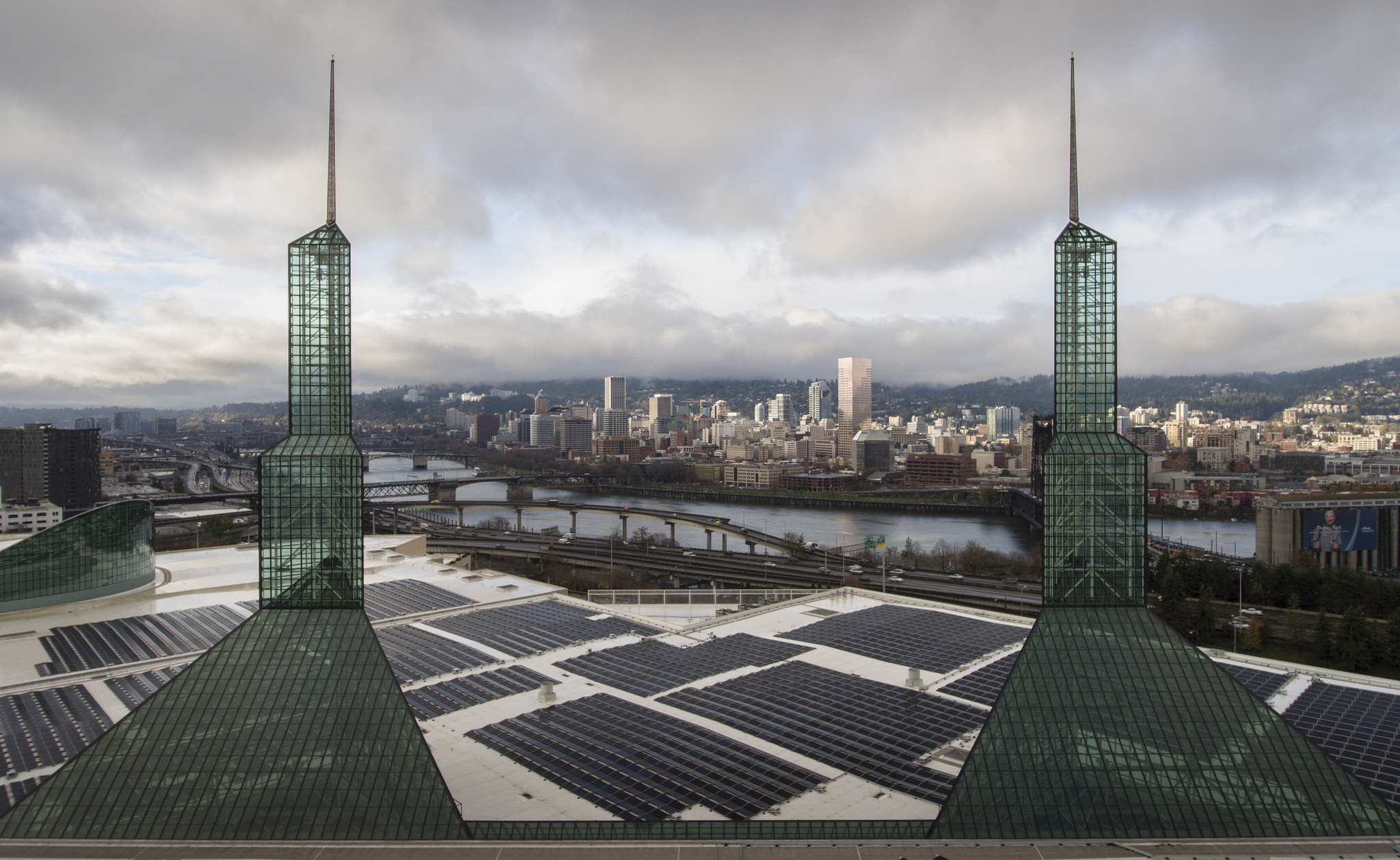Today marks the one year anniversary of the passage of Portland and Multnomah County’s 100% clean energy resolutions—the first city and county commitments to 100% clean energy in the Northwest.
From accelerating the transition of Oregon’s most populous city and county to clean energy, to inspiring other jurisdictions to pass their own resolutions, the 100% resolutions are proving worthy of an anniversary celebration.
A Refresher on the 100% Resolutions
The Portland and Multnomah County resolutions set two primary goals for 100% clean energy: (1) all of the city and county's electricity will come from renewable sources by 2035; and (2) all energy in the city and county (including transportation, residential, and commercial building sectors) will come from renewable sources by 2050 –city and county-wide, not just for public operations.
Some of the other key provisions include:
- Accelerating the shift to electric cars, buses, and freight
- Supporting frequent and affordable transit service
- Prioritizing community-based renewable development and local electricity generation
- Avoiding new fracked gas power plants and other fossil fuel development
- Ongoing commitment to meeting the city and county’s proportionate greenhouse gas reductions under the Paris Climate Agreement
The extent and significance of provisions led Portland Mayor Ted Wheeler to comment that the Portland 100% resolution was "one of the longest resolutions ever adopted in the history of the city, but…it is worthy of that title.”
The 100% Resolutions Are Already Driving Local Change
Official reports on implementation are not due back for another year, but it’s clear that the resolutions are already having a big impact locally and beyond. They have begun shifting major utility decisions towards renewable energy, strengthened efforts to electrify transit buses, led to planning for community resilience through local energy generation, and inspired other communities in the Northwest to follow suit.
- Shifting utilities towards renewable energy. Prior to passage of the 100% resolutions, Portland General Electric (PGE) had begun the permitting process for siting new fracked gas power plants. The proposal was inconsistent with the renewable energy future envisioned by the city and county, and local officials added important voices to the groundswell of public opposition, helping convince PGE to suspend its plans to build new fracked gas plants and instead meet their electricity needs with existing hydropower and new wind energy. Since the resolutions passed, PGE has been working to bolster its renewable energy efforts – committing to a system-wide reduction in climate pollution of more than 80% by 2050, planning significant renewable energy facilities, and proposing a green tariff program to allow large energy users to purchase more renewable power sourced directly from local facilities at a competitive price.
- Accelerating efforts to electrify transit buses. An affordable, robust transit system is essential to effectively serve the community and to reduce climate pollution from cars. At the same time, as Oregon’s largest purchaser of diesel, TriMet’s transition from diesel-powered buses to electric buses is crucial. Bolstered by the 100% resolutions, City and County officials as well as other organizations have been working with TriMet to accelerate the transition to a zero emission fleet, while supporting increasing service and fare relief for riders. TriMet is now studying how to best make the transition system-wide, with a pilot of five TriMet electric buses set to hit the streets this fall.
- Planning for community resilience through local energy generation. The 100% resolutions prioritize local projects and sources to meet community-wide clean energy needs, with a minimum goal of 2% by 2035. In response, the City and County are engaging and supporting community organizations to develop a work plan to achieve the goal. Community of color organizations have also spearheaded a local ballot initiative, the Portland Clean Energy Fund, to spur investments in community-based renewable projects.
Inspiring Change Across the Northwest
Two cities in the Northwest have already followed Portland and Multnomah County’s 100% clean energy lead—Edmonds, Washington in July 2017 and Bellingham, Washington last month—and several other cities are making commitments to clean energy. In the last year alone, climate and clean energy plans have been passed in Ashland, Hood River, Lake Oswego, and Milwaukie. Salem is in the process of developing its plan, and Corvallis, Eugene, Portland, Seattle, King County and the cities participating in the King County Climate Collaborative are all implementing existing plans.
Given the scope and extent of the commitments, we’re still in the early stages of meeting the goal of 100% clean energy. But if the first year is any indication, we’ll be celebrating the 100% resolutions for many years to come as a key part of the path to making the PNW as the first region in the U.S. to go 100% Clean.




